#compulsion 1959
Text

Some observations from my latest film binge
#rope 1948#strangers on a train#compulsion 1959#classic film#old film#film memes#shitposting#Hitchcock#hayes code#film noir#my movie thoughts
103 notes
·
View notes
Text



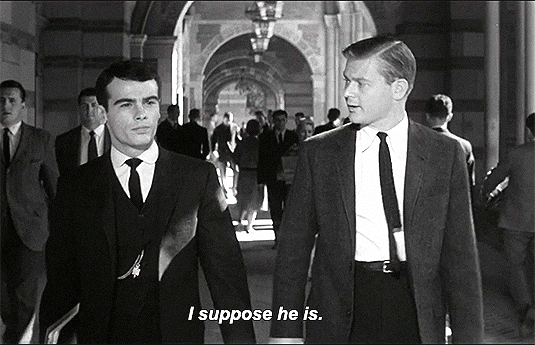
About all this Nietzche stuff. Do you really think there are super-intellects?
Yes, as matter of fact, I do.
Compulsion (1959) dir. Richard Fleischer
#compulsion#compulsion 1959#dean stockwell#oldhollywood#classicfilms#classicfilmsource#fyeahmovies#crime dramas#1950s#perioddramaedit#perioddramacentral#perioddramasource#userfilm#filmedit#filmgif#movieedit#moviegif#Dean Stockwell gifs#martin milner
250 notes
·
View notes
Text
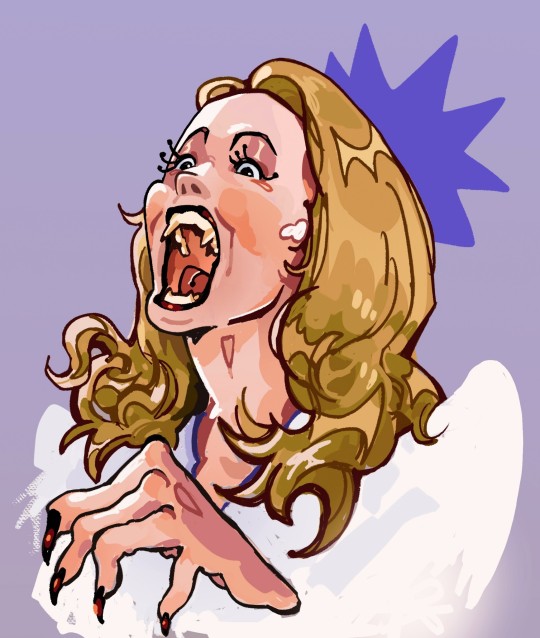

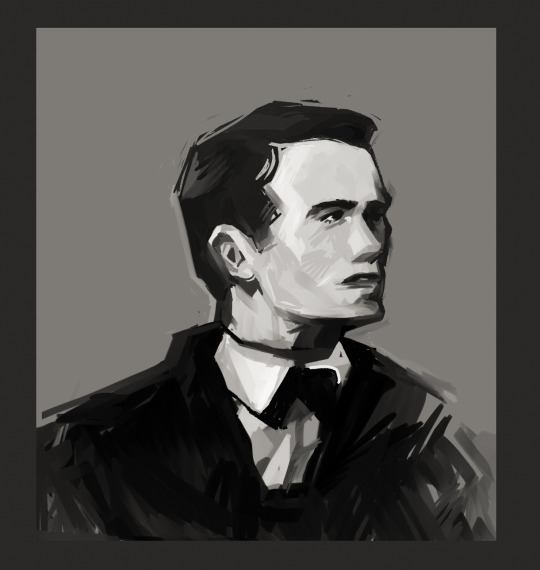

Portrait practice
82 notes
·
View notes
Text
compulsion is so funny if a woman said ‘i went out with him because i felt bad for him but then it turns out he murdered a child but i still feel bad for him so i’d still bang’ under oath at my own murder trial i would kill myself
#i see why he fainted. like could you believe#film#compulsion 1959#im not done this movie yet but im enjoying it. hi dean :) and orson i guess
10 notes
·
View notes
Text
this movie documentary opening with “film noir is about a guy who gets framed for a crime he didn’t commit” is so funny because I’ve seen 11 popular films so far, and 2 fairly known ones, and none of them have that plotline. Yeah, maybe he was involved with a murder, but either it’s his fault, he’s only a suspect, he doesn’t go through with it and isn’t suspected, he’s just a bystander or he’s just solving it
#sunset boulevard#gilda 1946#double indemnity#in a lonely place 1950#laura 1944#compulsion 1959#the big heat 1953#casablanca#a touch of evil#the strange love of martha ivers#human desire 1954#the postman always rings twice#the maltese falcon
37 notes
·
View notes
Text
the compulsion 1959 fandom is dying reblog if you’re a true juddhead
#compulsion 1959#shut up ulrike#ive had 1.5k of a probably only 2k fic written for MONTHS im sorry artie strauss and judd steiner ill finish it off soon
5 notes
·
View notes
Text
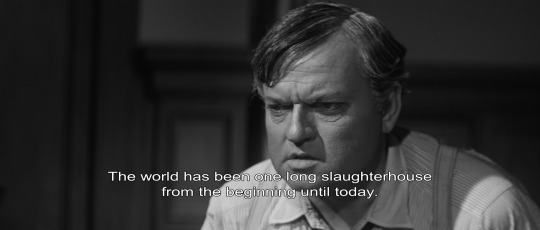

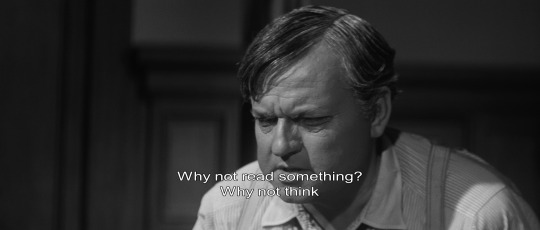

Richard Fleischer - Compulsion (1959)
15 notes
·
View notes
Text
leopold and loeb want what paul and julian have
#im watching compulsion (1959) rn….where’s the chokesex and beating each other up in the woods#JULIAN FROMME YOU WILL ALWAYS BE FAMOUS
6 notes
·
View notes
Text
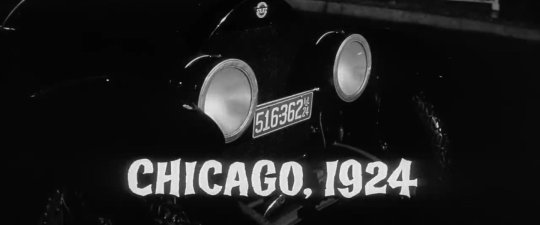

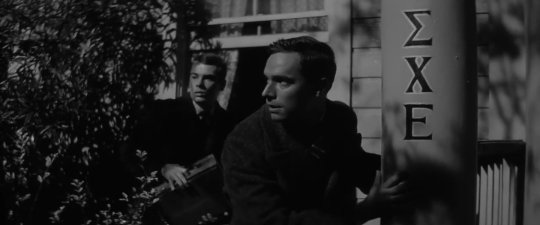
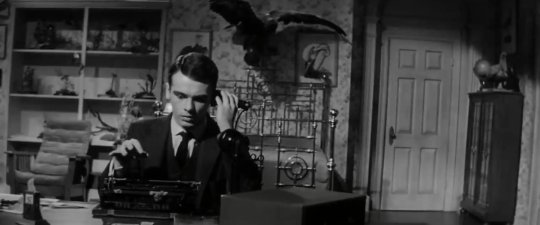

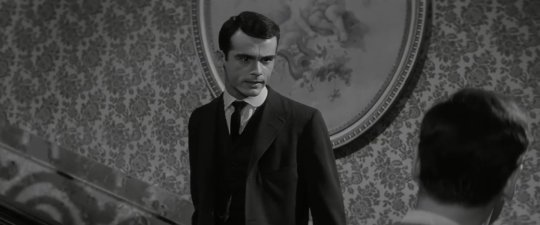
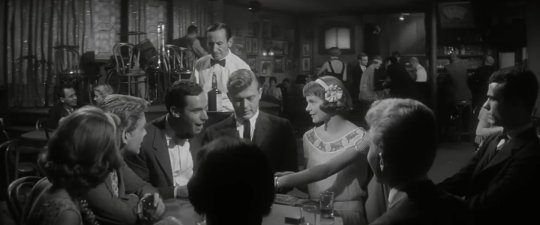

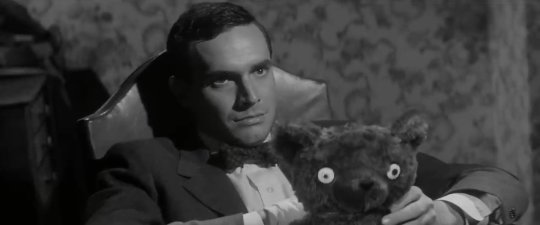

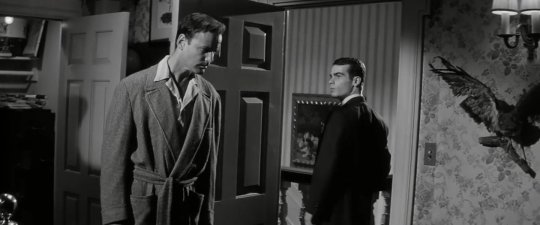

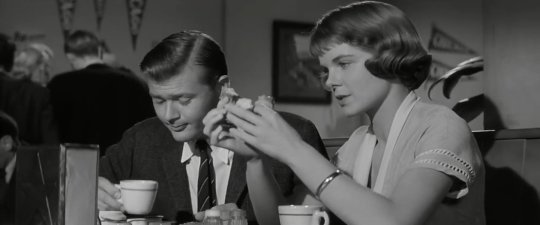


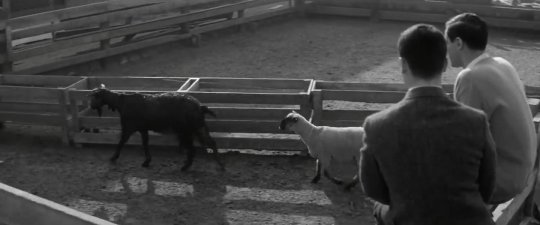


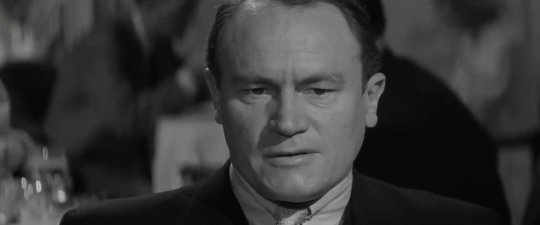
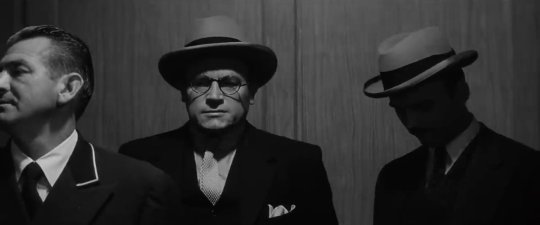

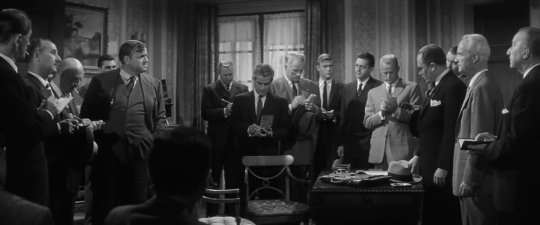
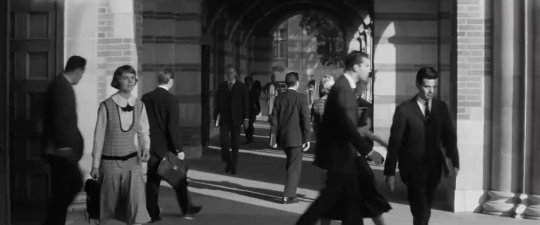

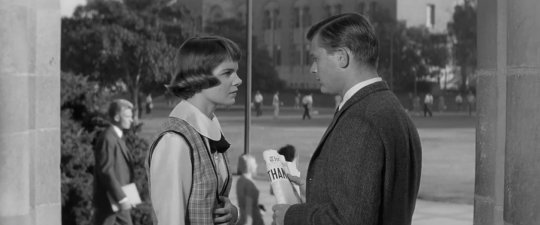

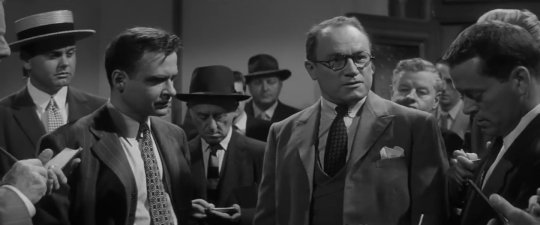
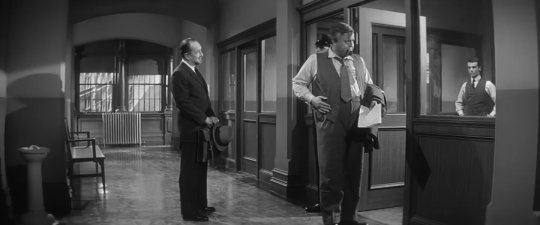
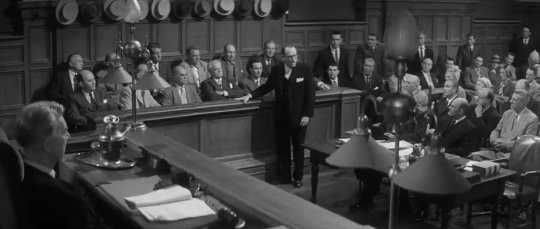

compulsion, richard fleischer 1959
#compulsion#richard fleischer#1959#orson welles#bande à part#la notte#persona#repulsion#chinatown#the great gatsby#sweet and lowdon#big fish#blue velvet#a time to kill#jfk#paris texas#don´t come knocking#palermo shooting#the da vinci code#jenseits der liebe#horn#kessler#tatort#them
0 notes
Text
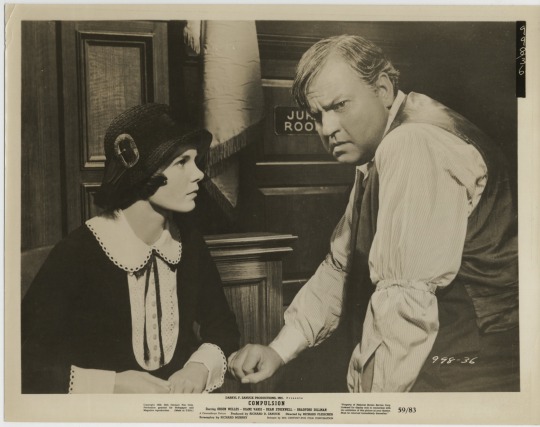
Diane Varsi and Orson Welles in Richard Fleischer‘s COMPULSION (1959)
20 notes
·
View notes
Text
“Miriam Kramnick (1978) is one of the few commentators on Wollstonecraft who outlines the nature of the ridicule she was subjected to and the significance of this form of sexual harassment. Wollstonecraft was the recipient of 'barely printable insults', states Kramnick. ‘Her own contemporaries called her a shameless wanton, a "hyena in petticoats", a "philosophizing serpent" or wrote jibing epigrams in the Anti-Jacobin Review, like
For Mary verily would wear the breeches
God help poor silly men for such usurping b…..s
Twentieth-century readers have called her an archetypal castrating female, "God's angry woman", a man hater whose feminist crusade was inspired by nothing more than a hopeless, incurable affliction — penis envy’ (ibid., p. 7).
Even feminists have been careful about associating with her and: ‘The name "Wollstonecraft", once considered synonymous with the destruction of all sacred virtues, disowned by the feminist movement as it marched for votes or pressed for admission to universities, became an obscure reference indeed’ (ibid., p. 8). When women sought to convince men that they were honourable, respectable, and deserving of equal representation in the institutions men had created for themselves, there was little room for Wollstonecraft, who had challenged those institutions and who had gained a ‘reputation.’
Like many of the reviews of Aphra Behn, some of the reviews of Wollstonecraft's work and life, on her death, were vicious. Her work should be read, declared the Historical Magazine (1799), ‘with disgust by any female who has any pretensions to delicacy; with detestation by everyone attached to the interests of religion and morality, and with indignation by anyone who might feel any regard for the unhappy woman, whose frailties should have been buried in oblivion’ (vol. I, p. 34). This was about as far as critics could go in the pre-Freudian days, but once he had made his priceless contribution, the attack on women who did not conform to the precepts dictated by men assumed a new and greater ferocity.
‘Mary Wollstonecraft was an extreme neurotic of a compulsive type,' argue Ferdinand Lundberg and Marynia Farnham (1959) in Modern Woman: The Lost Sex. Out of her illness arose the ideology of feminism, which was to express the feelings of so many women in years to come. Unconsciously ... Mary and the feminists wanted ... to turn on men and injure them.... Underneath her aggressive writings, Mary was a masochist like her mother, as indeed all the leading feminist theorists were in fact.... By behaving as she did Mary indicated.... that she was unconsciously seeking to deprive the male of his power, to castrate him. It came out in her round scolding of men. The feminists have ever since symbolically slain their fathers by verbally consigning all men to perdition as monsters' (pp. 159-61). Really?
With the framework formulated by Freud, it again became easy to ridicule and harass women who developed any analysis of patriarchy, to dismiss them without having to refute their ideas. The scientific dogma took over from the religious dogma which had been seriously discredited (by women like Wollstonecraft) and both these male-decreed belief systems have been used ruthlessly against individual women and against women collectively. In her own day Mary Wollstonecraft was maligned for her moral sickness; with the advent of Freud it was her mental sickness. The principle is the same and it was a principle that Wollstonecraft herself identified and discredited - the principle that if women do not cheerfully confine themselves to the place to which men have relegated them, then there is something wrong with the women rather than the place they are expected to occupy. Mary Wollstonecraft understood that women would continue to be perceived as abnormal while the limited experience of men was treated as the sum total of human experience. One of her main protests was that men did not know how the world looked to women and, while they insisted that it looked no different from the way it looked to men, women were without space to discuss, share and confirm their feelings and ideas. And in this, Wollstonecraft is one of a long line of women who have come to understand the significance of male power to name the world and to say what is and what is not important, valuable, and ‘logical’.”
-Dale Spender, Women of Ideas and What Men Have Done to Them
#dale spender#mary wollstonecraft#female oppression#female erasure#womens history#early feminism#feminist history
89 notes
·
View notes
Text
Of the many attractive girls who hung around the Casbah, one in particular caught John's eye. She was an elfin blonde with a tense, wounded look, whom he nicknamed Bubbles, for lack of a proper introduction and because it so unsuited her. In fact, all the guys had noticed her watching them. While not a beautiful girl, she was catlike and intense, in a mysterious kind of way. She also was eager to meet them. "It must have been all over my face that I fancied John," recalls Bubbles, whose real name is Dot Rhone, "but once it became clear he had a girlfriend, I lost interest." Instead, she approached Paul with game determination, pretending to be faint in order to get him outside, where they could be by themselves.
Once alone, an "immediate attraction" developed between them. Paul discovered in Dot a person who hardly fit the profile of the other girls at the Casbah. She had grown up in a better section of Liverpool called Childwell, around the corner from Brian Epstein, the Beatles' future manager. But "it might have been two different worlds," Dot says, her humble situation being anything unlike Epstein's glaringly "posh" circumstances. "I didn't have a normal childhood. My dad was an alcoholic; he never hung on to any money. And the only reason we lived in that neighborhood was because a sickly aunt left the house to my mother." A year younger than Paul, Dot had gone to Liverpool Institute High School, "the girls' school across the road from the Inny", but had left in June, taking a clerk's job at the Dale Street branch of District Bank in order to support her family. Paul, she believes, was attracted by how needy and impressionable she was, which put her under his sway; she found him "adorably handsome, opinionated," and loaded with confidence. "He came from the first family I'd ever known that cared about each other so much," Dot says. "Everyone would gather around the piano, while Jim played songs like 'You Must Have Been a Beautiful Baby', and sometimes [he] would sing with Paul and Mike." At a deeper level, they undoubtedly recognized the loneliness in each other's lives, each absent a parent - in her case because of addiction. [...]
As 1959 drew to a close, the boys spent more time with girlfriends than with one another. John and Cynthia, according to friends closest to the couple, were "besotted with each other". For his part, Paul stopped playing the field and settled down with Dot Rhone. As a couple, they had an appealingly unthreatening air. They discovered each other to be solicitous and sensual, gentle and clumsy, with Paul at times taking on a paternal and sympathetic role. Once, at a friend's house, Dot happened to mention that she'd been standing all day and he began to massage her feet, stroking them as though they were precious pets. And yet, at the time the gesture felt almost preposterous.
Eventually Paul's attention grew relentless, almost disparaging. His simple gregariousness turned uncompromising and willful. Paul was immensely charming, but there was a darker side. He had a need - Dot believes a compulsion - to control every situation. As John had done with Cynthia, he began to pick out her clothes, redesign her makeup. Dot remembers how much it pleased Paul to stand beside her and study her appearance, then, in a roundabout way, critique the way she looked - and suggest how to improve upon it. On one occasion, he insisted that she have her hair done and produced money to pay for it. Not wanting to displease him, Dot went off to the beauty parlor. "Unfortunately, they did [my hair] in a terrible-looking beehive", she says. "Paul was furious when he saw it. He told me to go home and not to call him until it grew out again."
She detected other changes in Paul that proved equally disagreeable. He had an almost stuffy, explosive air of self-importance, with his simple superiority, cool poise, and weatherproof rightness. He scorned any sign of self-confidence in her. And Dot, pricked by love, submitted. As a rule, she did not impose her will on him, certainly never when they were among friends. She would sit quietly and smile tensely for entire evening at the Jacaranda while Paul and John discussed music. If Paul glared, she would freeze like a rabbit. "We weren't allowed to open our mouths", Dot says of her and Cynthia's attendance at these nightly discussions. "They'd talk all night, and we just listened."
The Beatles: The Biography, Bob Spitz (2005)
#the dot quotes are from an author interview in 1998#poor dot!#also v interesting that this is how she saw it looking back...#give me all the terrible teenage paul content tbh#dot rhone#paul mccartney
47 notes
·
View notes
Text
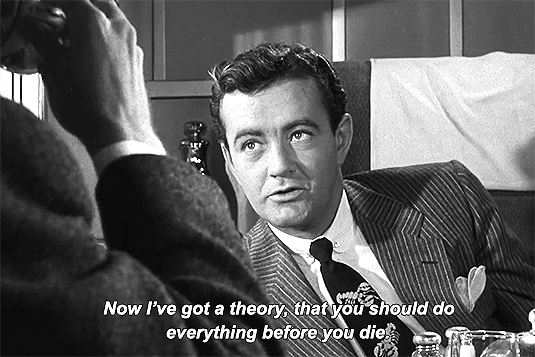
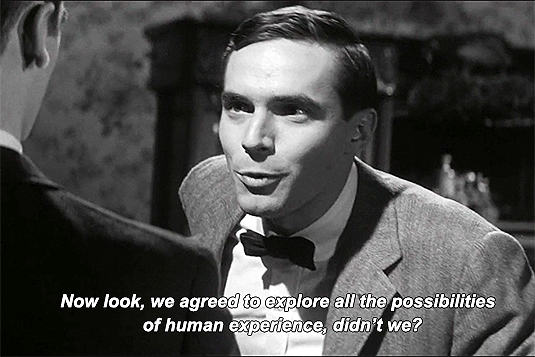
they could have been besties
Strangers on a Train (1951) dir. Alfred Hitchcock
Compulsion (1959) dir. Richard Fleischer
#Artie and bruno...#strangers on a train#compulsion 1959#classicfilm#filmedit#movieedit#filmgif#moviegif#classicfilmsource#userstream#perioddramacentral#perioddramaedit#fyeahmovies
138 notes
·
View notes
Text

Cinediario 2023 - dicembre
Compulsion (1959) Richard Fleischer
16 notes
·
View notes
Text
had to replay this scene cause I kept getting distracted from Judd's fucked up dialogue
3 notes
·
View notes
Text
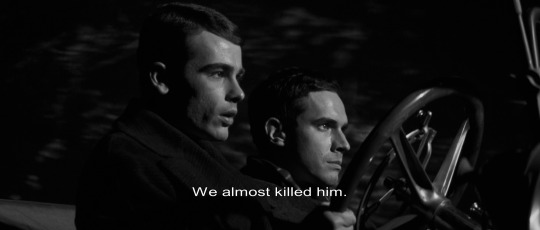

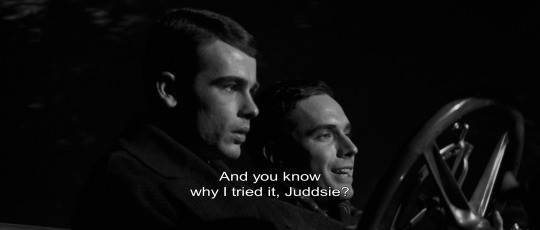
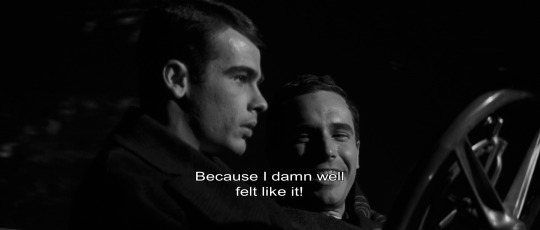
Richard Fleischer - Compulsion (1959)
12 notes
·
View notes